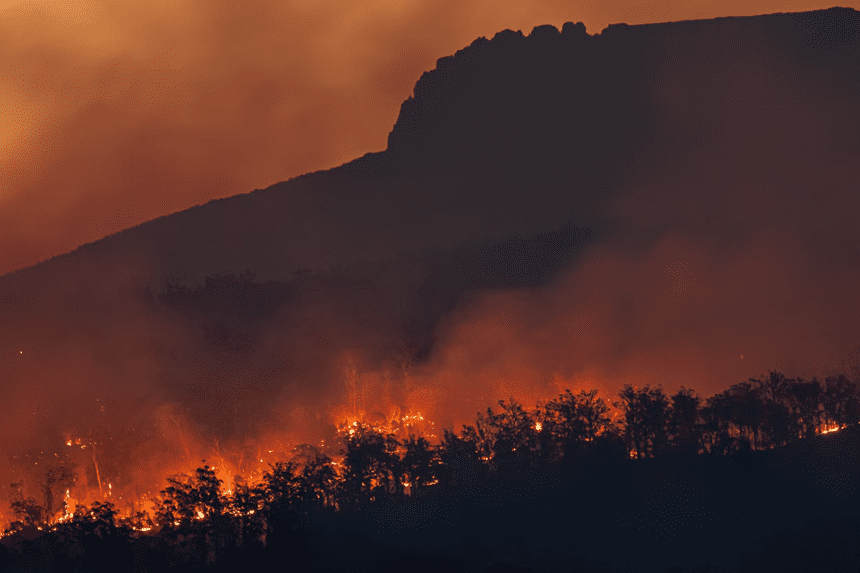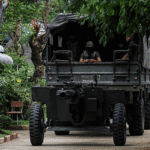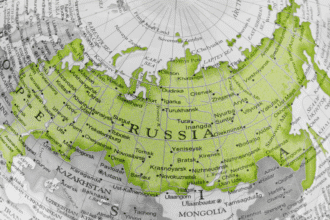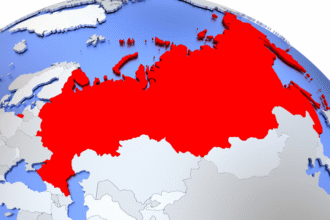The flames in Greece. The problem in Turkey has gotten worse as both countries deal with raging flames and a harsh heat wave. Greece said on Sunday that there was a serious fire threat in several areas, including the Peloponnese, Crete, and Evia. The hazard was made worse by temperatures reaching as high as 42.4°C (108.32°F). In the city of Silopi, Turkey, the temperature reached a record high of 50.5°C, making it the hottest place on Earth. Firefighters were having a hard time putting out fires in several areas. Both countries are fighting wildfires that have never happened before and have already killed people, forced thousands to leave their homes, and damaged a lot of land and property.
- How Did Greece Have Wildfires? Turkey Emerges in the Middle of Extreme Heat
- What is the current state of firefighting efforts in Greece and Turkey?
- Why are the wildfires in Greece and Turkey so bad this year?
- What are local governments doing about the wildfires in Greece and Turkey?
- Final Thoughts on the Wildfires That Are Still Going On, Greece, and the Crisis in Turkey
How Did Greece Have Wildfires? Turkey Emerges in the Middle of Extreme Heat
The wildfires in Greece came from Turkey, can be traced back to a combination of very hot and dry weather in the Mediterranean region. Greece had further high temperatures on Sunday, which made it hard for emergency workers to fight flames on many fronts, including the islands of Kythira, Evia, and the Peloponnese. Turkey also saw a record-breaking heat wave, with temperatures in Silopi reaching 50.5°C, which caused fires to break out across large areas of land. Winds that fan flames make these conditions worse, making it harder to control the fire. Local governments in both nations have had to limit water use, especially in places that are popular with tourists. Here is the link to our article on the Los Angeles Wildfires
What is the current state of firefighting efforts in Greece and Turkey?
Even though the wildfires in Greece and Turkey are huge, firefighters have made some progress. Fire department spokeswoman Vasilios Vathrakoyannis said that things were bad in Greece, but they got better after an “all-night battle.” But the flames are still being fed by strong winds. The fire has affected about 20% of Kythira, and several villages have been told to leave again. A 20-kilometer fire front in Crete is threatening farms, beehives, and animals. Firefighters in Turkey are having a hard time, especially in the region of Karabuk, where fires have been blazing for days. Ibrahim Yumakli, Turkey’s forestry minister, said that it might take days for the flames to be completely put out.
Why are the wildfires in Greece and Turkey so bad this year?
There are a number of reasons why the flames in Greece and Turkey this year are so bad. The unprecedented heat wave in Turkey, where temperatures rose above 50°C, has dried out plants and made it easy for fires to spread. The powerful winds that keep blowing throughout both countries have made things worse by spreading fires into places that are hard to get to. Also, Greece and Turkey have been in drought for a long time, which makes it tougher for firefighters to put out the fires. To keep resources from being stretched too thin, local governments have put limits on how much water people can use, especially in tourist areas. Here is the link to our article on Firefighter Struggles Intensify
What are local governments doing about the wildfires in Greece and Turkey?
Greece and Turkey have both called in emergency services and asked for help from other countries. In Greece, the government asked the EU Civil Protection Mechanism for support, and it sent six firefighting planes to help. Even though these steps have been taken, the fires are still raging, and more than 100 firemen are working to put them out in different areas. Turkey has also used its forestry resources to put out the fires. Local governments are working together with fire departments to carry out evacuation orders in places like Kythira and Crete that have been affected. But the fires have already done a lot of damage, especially in rural and forested areas.
Final Thoughts on the Wildfires That Are Still Going On, Greece, and the Crisis in Turkey
The wildfires in Greece and Turkey are a really bad situation that is made worse by excessive heat, continuous droughts, and climate change around the world. Firefighters have made some progress in putting out the fires, but the job is still very hard, especially since the weather is still good for spreading fire. As both countries try to limit the damage, the rest of the world needs to think about how climate change affects these kinds of disasters and what it means for the future. We need to act right away to stop other problems from happening, and we still need to work together with other countries to deal with the damage caused by these terrible flames.








